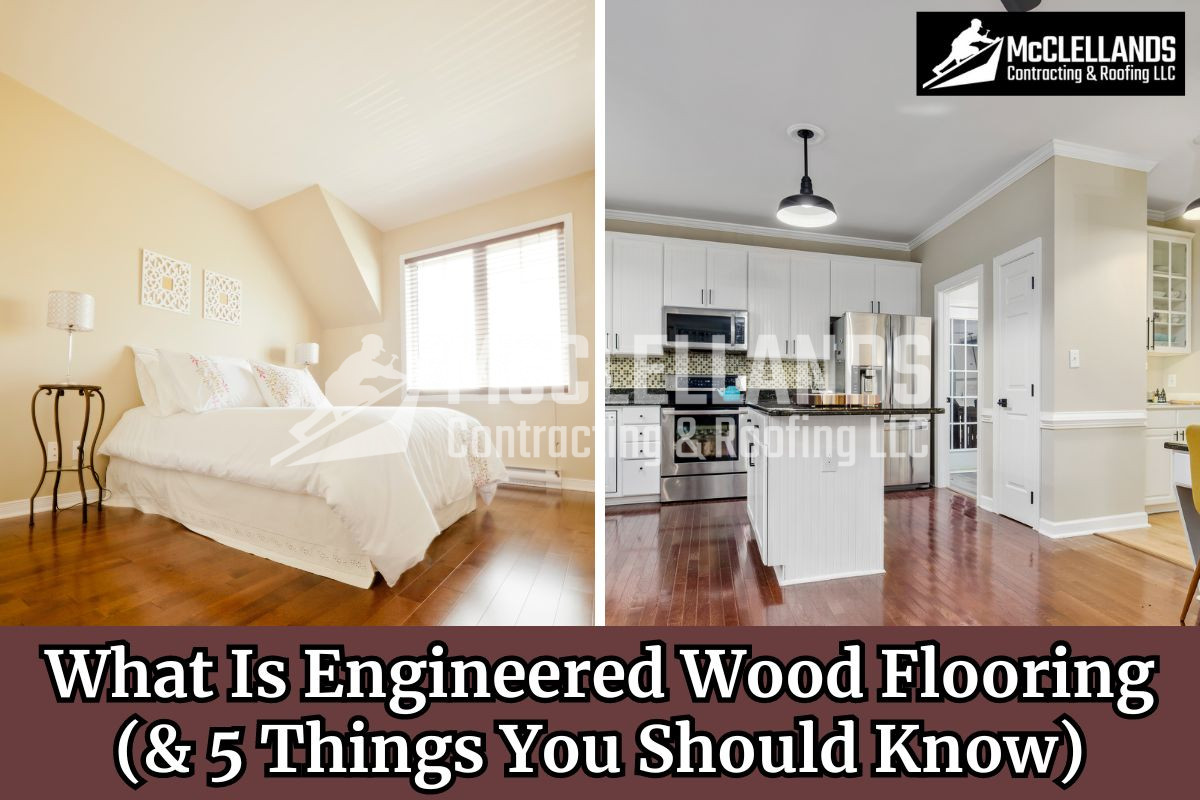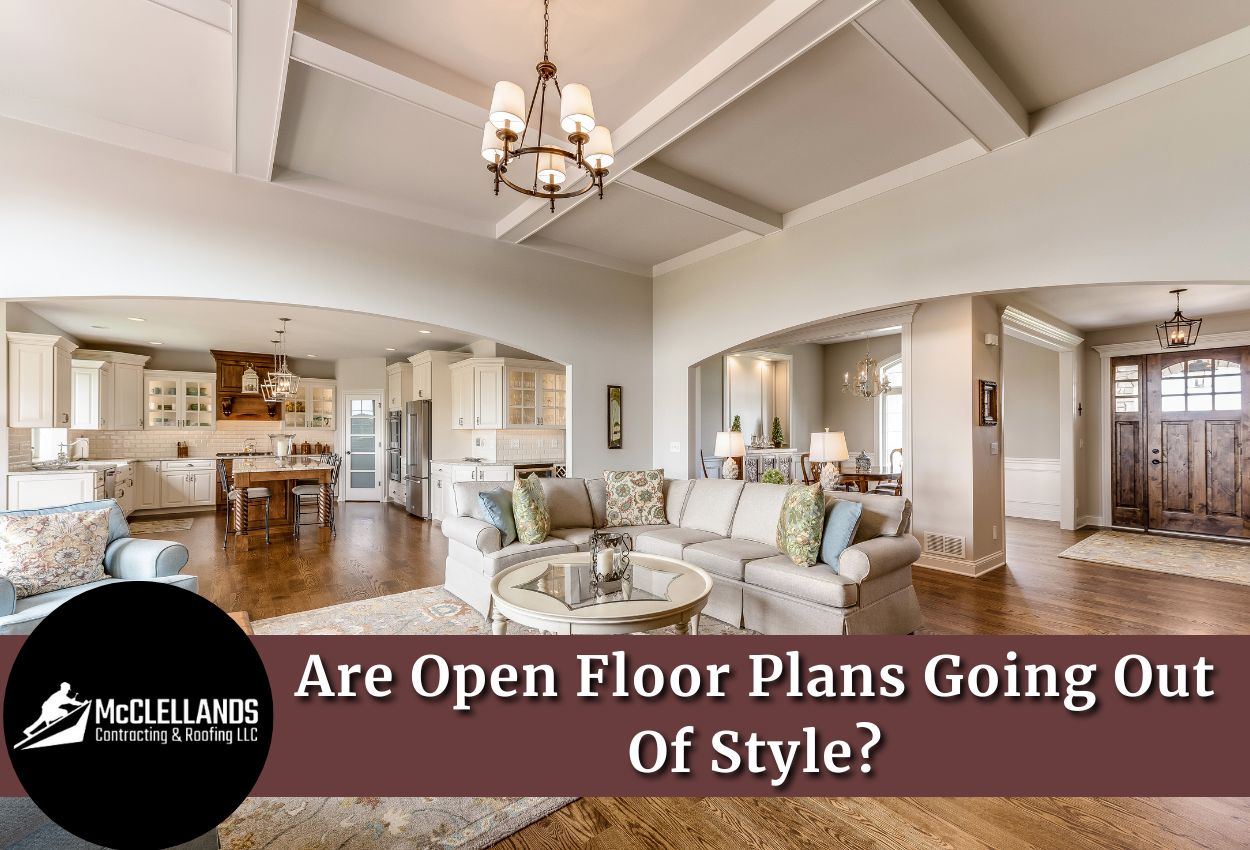If you want to redo your floors, you might have encountered engineered wood flooring while exploring different options.
But what exactly is it? Engineered wood floors are a modern alternative to traditional hardwood floors with unique advantages.
At McClellands Contracting and Roofing, we take pride in providing high-quality floor remodels for homeowners in Pittsburgh and the surrounding areas. We will discuss engineered wood flooring and five important things to know about it in this blog post.
What is Engineered Wood Flooring?
Engineered wood flooring comprises layers of different wood materials stacked in a cross-grain configuration and topped with a thin natural hardwood veneer. The multi-layer construction makes engineered wood more stable and less prone to changes from heat and humidity compared to solid hardwood planks.
5 Things Homeowners Should Know About Engineered Wood Flooring
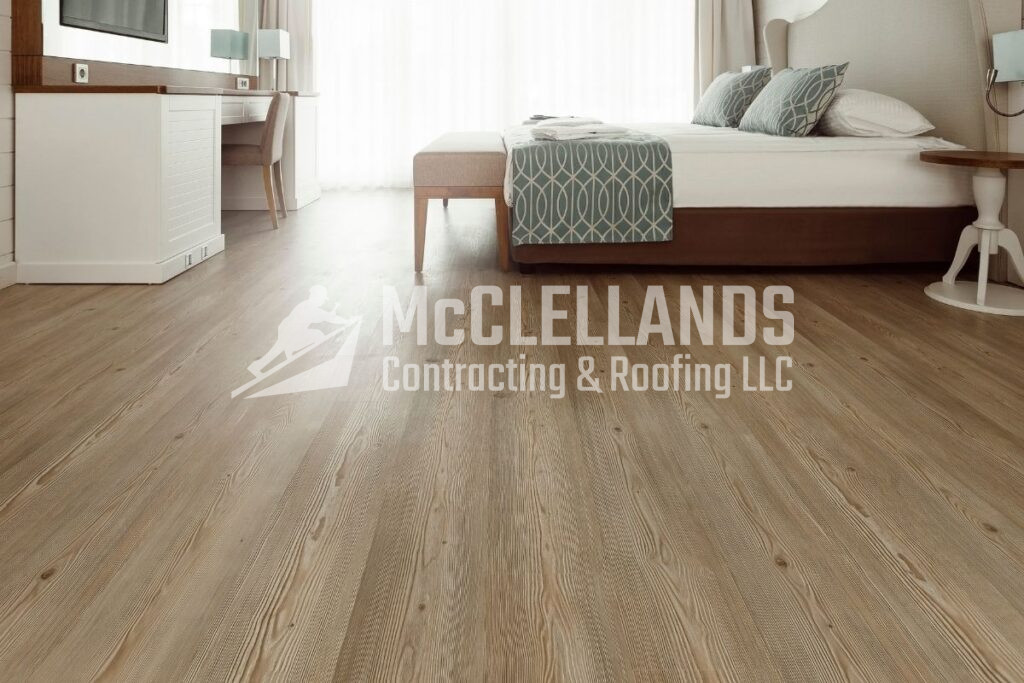
#1 Why Is Engineered Wood Flooring A Popular Choice Among Homeowners?
Some features of engineered wood floors make them a common choice for homes.
1. Durability and Dimensional Appearance
The cross-gain design of the engineered wood core provides it with extra dimensional stability. The alternating grain directions counteract the wood's natural expansion and contraction, making engineered floors less likely to cup, crown, or develop gaps between boards with changes in temperature or humidity levels.
2. Can Be Installed Directly Over Concrete Slabs
Most engineered wood flooring options can be installed directly over concrete slabs. This makes them an excellent choice for basement floors, ground levels, or homes without conventional wood subfloors.
3. Easy To Install
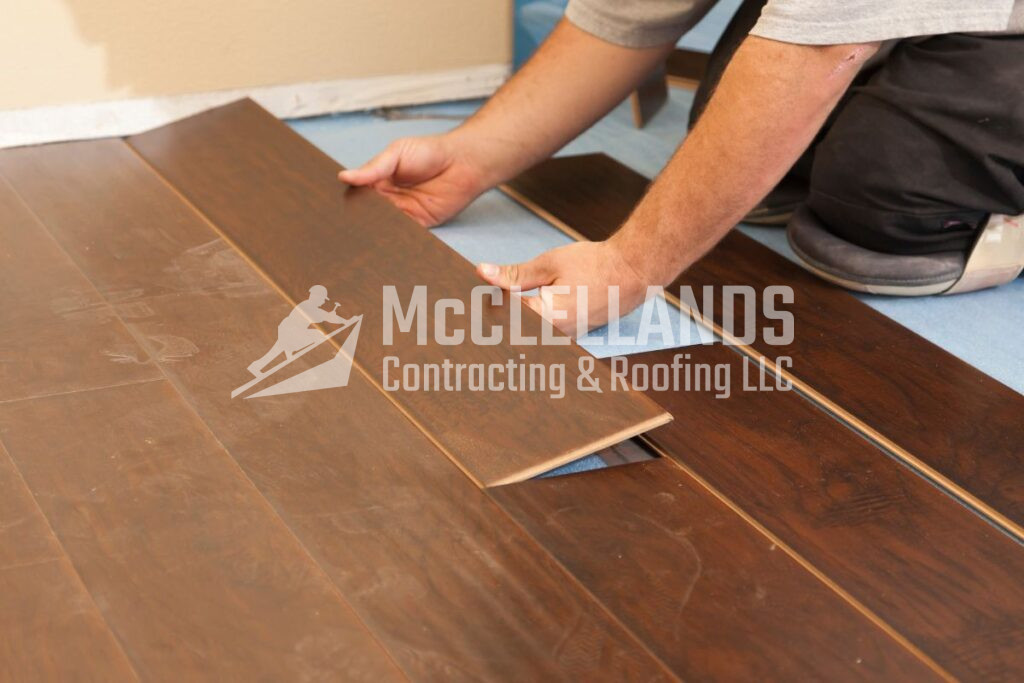
Some engineered floors use some type of click-lock or tongue-and-groove installation system. This system allows the planks to be clicked together without using nails or adhesives, resulting in a faster installation compared to nailing down solid hardwood boards.
4. Available In Various Wood Species
The type of wood used for the surface veneer determines the overall look of the floors. Best-rated engineered wood flooring brands offer a wide variety of wood options like oak, maple, hickory, cherry, walnut, mahogany, and more, all at different price points.
#2 How Long Does Engineered Wood Flooring Last?
One of the major advantages of engineered wood flooring is its impressive lifespan. While the specific longevity depends on factors like quality, thickness, and proper maintenance, you can generally expect an engineered floor to last 20-30 years with normal residential use.
The construction allows engineered planks to better withstand changes in temperature, humidity, and moisture compared to solid hardwood. High-quality products with thicker wood veneers and stable multi-ply cores provide the longest lifespan. Additionally, some engineered wood flooring brands offer 30-50 year warranties on their products.
#3 What Are The Limitations Of Engineered Wood Flooring?
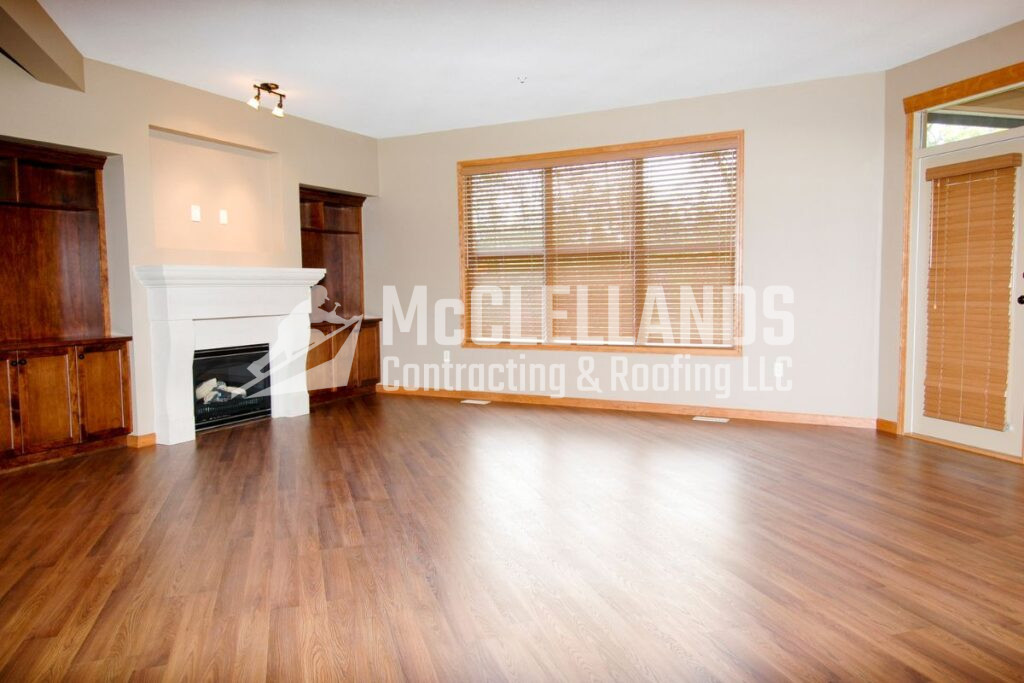
While engineered wood flooring has many positive features, it also has some potential disadvantages that you should know about before installing it in your living space.
1. Comparatively Costlier Than Other Flooring Options
The overall cost of engineered wood flooring can be higher than other options like laminate, vinyl, or carpet. However, for homeowners working on a low budget and looking for an affordable option, engineered wood floors' durability and aesthetic appearance justify their cost.
2. Not Suitable For Areas With Regular Moisture Exposure
Engineered wood floors can sustain average moisture levels, but there may be better choices for areas regularly exposed to moisture.
Water can seep into the core of the flooring, causing it to swell. This can lead to significant repair costs and potentially render the flooring unusable. To avoid this risk, it is essential to ensure proper installation, maintenance, and protection from water and moisture.
3. Engineered Wood Is Prone To Fade When Exposed To Direct Sunlight
Engineered wood flooring can fade over time, especially if exposed to direct sunlight. This can result in uneven fading and noticeable lines where rugs or furniture are placed. Fading can be a significant issue for those who value the appearance of their flooring.
It is recommended to use window coverings, such as curtains or blinds, so the flooring doesn’t receive any direct sunlight.
4. Engineered Wood Flooring Can’t Be Refinished As Much
Engineered wood flooring can only be refinished or sanded a few times before the top layer of hardwood wears away. This means the flooring will need to be replaced, which can be a significant expense. In contrast, solid wood flooring can be refinished multiple times, making it a more durable and long-lasting option.
5. Low-Quality Engineered Wood Planks Can Produce A Hollow Sound
Some low-quality engineered wood products can produce a hollow sound when walked on due to their thinner and less dense construction. This can be a significant drawback for those who value the insulation quality of their flooring. To minimize this problem, choosing a higher-quality engineered wood product with a denser construction is recommended.
#4 How Much Does It Cost To Install Engineered Wood Flooring?
Generally, engineered wood flooring costs between laminate and genuine hardwood. On average, options range from $3 to $10 per square foot or more for higher-quality wood veneers. The installation cost can also range from $6 to $21 per square foot including labor.
Picking the right product is important, as the quality, durability, and disadvantages of engineered wood flooring vary hugely depending on the materials and construction. Some lower-quality options use very thin veneers or lack a stable core, making them prone to separating or showing wear quickly.
The best way to judge quality is to look at the overall thickness, including both the wood veneer thickness and the number of core layers used. Higher-end engineered floors generally use 9 or 11-ply cores and around 4 mils of hardwood veneer, which results in better performance.
#5 How to Clean Engineered Wood Floors
You might wonder if it is easy to keep engineered wood floors clean. One of the biggest perks of engineered hardwood compared to solid wood is that it can better withstand moisture from spills and cleaning due to the finish on the wood veneer surface.
For routine cleaning, sweeping or vacuuming to remove dust and debris is recommended. You can also use manufacturer-approved wood floor cleaners and damp mop the floors as needed. Avoid excessive water exposure and cleaners containing wax, oil, or ammonia, which can dull or damage the finish over time.
If cared for properly, high-quality engineered wood floors can provide decades of warmth and beauty to your home. With a huge selection of styles, plank sizes, textures, and wood species available, this versatile and stable option offers endless flooring design possibilities.
Some Best Rated Engineered Wood Flooring Manufacturers
These are a few of the best-rated engineered wood flooring brands.
- Mohawk: Mohawk is a leading brand offering an extensive selection of engineered hardwood floors, praised for their superior quality, longevity, and diverse style options.
- Shaw: Shaw is another best-rated brand that provides a range of durable, stylish, engineered wood flooring choices with beautiful finishes and construction.
- Bruce®: An esteemed company with decades of experience crafting classic, long-lasting engineered floors renowned for their timeless looks and durability.
Also read: Engineered Wood Flooring Vs. Hardwood: Which Is Better?
Call McClellands Contracting and Roofing For Floor Remodeling Services In Pittsburgh
If you are looking for a reliable partner who can remodel your floors in Pittsburgh, PA, or surrounding areas, we are here to assist you. At McClellands Contracting and Roofing, we have an entire team of skilled and experienced contractors who will make sure your project is completed with the best materials and techniques.
With us, you can expect a seamless floor remodeling process that meets your vision and exceeds your expectations. Our commitment to delivering quality artistry and customer satisfaction sets us apart from other contractors. Whether you need hardwood, engineered wood, or any other flooring solution, we have the knowledge and resources to transform your space. Trust McClellands Contracting and Roofing as your reliable partner for all your floor remodeling needs in the Pittsburgh region. Feel free to call us at (412) 353-5660.

